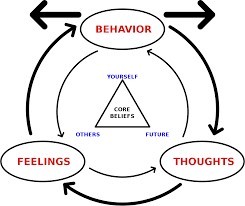An older client is admitted to the intensive care unit unconscious after several days of vomiting and diarrhea.
Vital Signs
Heart Rate-beats/minute- 110 Respirations - breathes/minute- 28 Blood Pressure – mmHG- 80/60
Arterial blood gases (ABGs)
Ph- 7.34
PaCO2- 34 mmHg
HCO3- 20 mmol/L
pO2- 90 mmHg
Electrolytes Results
Sodium
130 mEq/L(mmol/L) Potassium
2.5 mEq/L (mmol/L) Chloride
95 mEq/L (mmol/L)
Reference Range:
Sodium [136 to 145 mEq/L (136 to 145 mmol/L)]
Potassium [3.5 to 5 mEq/L (3.5 to 5 mmol/L)]
Chloride [98 to 106 mEq/L (98 to 106 mmol/L)]
PaCO2 [35 to 45 mm Hg]
HCO, [21 to 28 mEq/L (21 to 28 mmol/L)] PaO2 [80 to 100 mm Hg)
The nurse inserts a urinary catheter and obtains a scant amount of dark amber output. Which intervention should the nurse implement first? (Please scroll and view each tab's information in the client's medical record before selecting the answer.)
Initiate continuous dopamine infusion at 2 mcg/kg/minute.
Administer promethazine 25 mg slow intravenous (IV) push every 4 hours.
Begin potassium chloride 10 mEq over 1 hour per secondary infusion.
Give a bolus of 0.9% sodium chloride 1,000 ml over 30 minutes.
The Correct Answer is D
A) Incorrect - Initiating continuous dopamine infusion is not a priority in this situation. The client's low blood pressure and electrolyte imbalances require more immediate attention.
B) Incorrect - Administering promethazine addresses symptoms like nausea and vomiting, but it doesn't address the primary issue of hypovolemia and low blood pressure.
C) Incorrect - Administering potassium chloride without addressing the fluid deficit can be dangerous and may lead to further electrolyte imbalances.
D) Correct- The client's vital signs and laboratory results indicate hypovolemia (low blood pressure, low sodium, and low potassium). The immediate priority is to address the fluid deficit and correct the electrolyte imbalances. Administering a bolus of 0.9% sodium chloride (normal saline) will help increase intravascular volume and improve blood pressure, as well as correct the electrolyte imbalances to some extent.
Nursing Test Bank
Naxlex Comprehensive Predictor Exams
Related Questions
Correct Answer is ["D","E"]
Explanation
A) Incorrect - Phototherapy, often used to treat conditions like seasonal affective disorder (SAD) or certain skin conditions, involves exposure to specific wavelengths of light. It is not typically used as a treatment for distressing thoughts and memories related to trauma, as described in the client's situation.
B) Incorrect - Lithium is primarily used to treat bipolar disorder and is not a first-line treatment for trauma-related symptoms or acute stress disorder. The client's symptoms are more indicative of trauma-related distress, which would be addressed through psychotherapeutic approaches like cognitive behavioral therapy (CBT).
C) Incorrect - "Consciousness-raising" is not a recognized treatment intervention in this context.
It's important to focus on evidence-based therapeutic approaches for trauma-related symptoms, such as psychotherapy and support services.
D) Correct - Cognitive behavioral therapy (CBT) is Given the client's distressing thoughts and memories, CBT is a highly effective psychotherapy approach. It focuses on identifying and modifying negative thought patterns and behaviors associated with trauma. CBT can help the client develop healthier coping strategies.
E) Correct - Animal-assisted therapy involves interacting with trained animals to improve emotional well-being. Since the client expresses feeling unhappy and having difficulty coping, animal therapy can provide comfort, reduce stress, and promote a sense of companionship.
F) Incorrect - Electroconvulsive therapy (ECT) is a treatment primarily used for severe cases of depression or certain psychiatric conditions that are unresponsive to other treatments. It involves inducing controlled seizures to affect brain chemistry. ECT is not a first-line treatment for the client's distressing thoughts and memories following a traumatic event.

Correct Answer is B
Explanation
The correct answer is Choice B.
Choice A rationale: Ice application induces vasoconstriction, which reduces swelling but does not evert inverted nipples. This action does not address the primary issue of nipple inversion preventing adequate latch.
Choice B rationale: Breast pump use creates negative pressure, drawing out the nipple. This eversion facilitates latching by providing a more prominent nipple for the infant's oral cavity to grasp effectively.
Choice C rationale: Supplemental formula feedings provide nutrition, but do not resolve the latching difficulty caused by inverted nipples. This can interfere with the establishment of the mother's milk supply.
Choice D rationale: Breast shields can aid latching, but they are most effective when used in conjunction with nipple eversion techniques. They do not directly address the underlying problem of inverted nipples.
Whether you are a student looking to ace your exams or a practicing nurse seeking to enhance your expertise , our nursing education contents will empower you with the confidence and competence to make a difference in the lives of patients and become a respected leader in the healthcare field.
Visit Naxlex, invest in your future and unlock endless possibilities with our unparalleled nursing education contents today
Report Wrong Answer on the Current Question
Do you disagree with the answer? If yes, what is your expected answer? Explain.
Kindly be descriptive with the issue you are facing.
